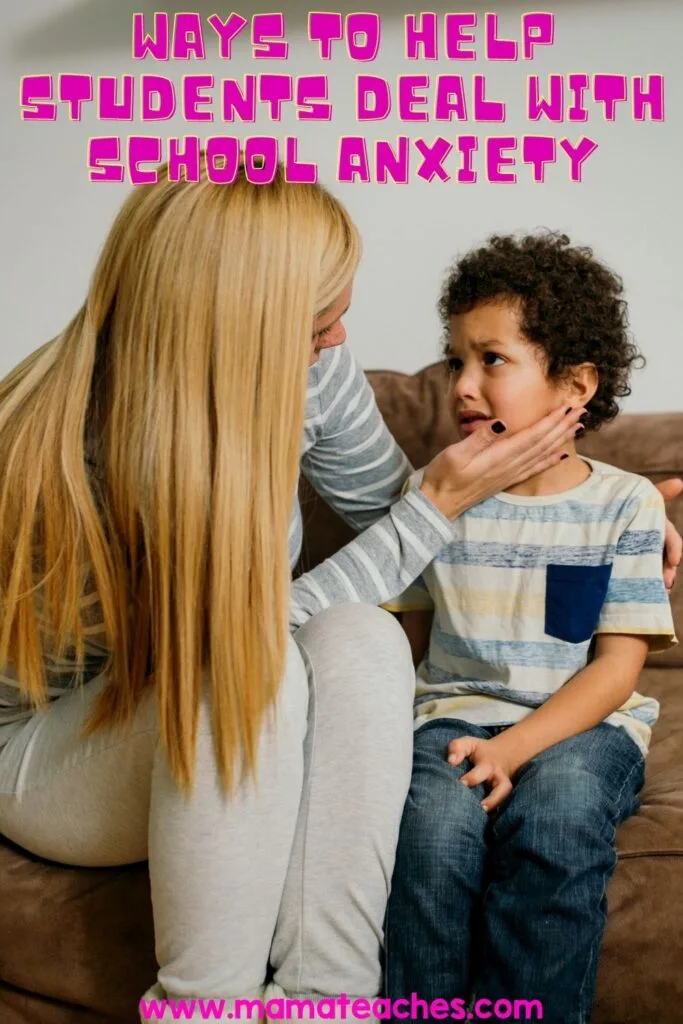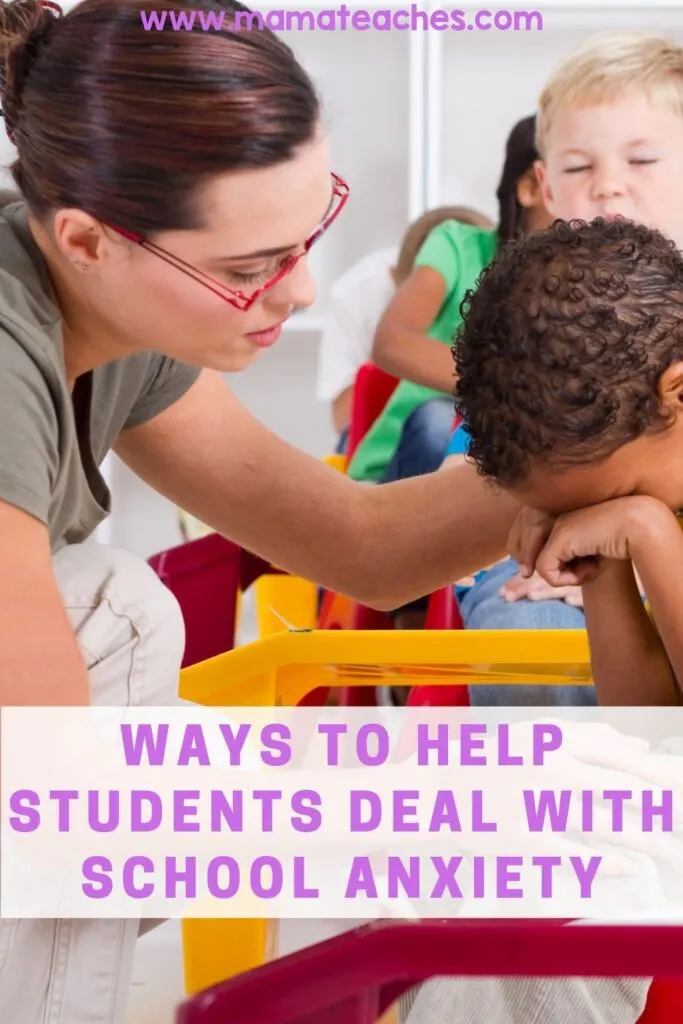It’s normal to feel some anxiety or apprehension before the first day of school, but some kids’ anxiety goes beyond that.
For some, school itself can be a source of anxiety (or a place where anxiety surfaces).
Follow these steps to help students with school anxiety.

This article contains affiliate links to things that you might like.
What Is School Anxiety?
School has its own host of stressors for kids: “Will I be in the same classes as my friends?
Can I keep up?
How do I deal with conflict with this person?
How can I hold up against peer pressure?” These swirling pressures may cause school anxiety.
In addition, students may have stressors at home like a sick parent, family conflict, or instability.
Those challenges may preoccupy a student at school and make her anxious.
School anxiety can “look” different ways: Students may be reluctant to attend school or refuse to participate in certain activities.
They may be easily agitated or have a hard time focusing.
There may be physical symptoms as well, like stomachaches and headaches.

Helping a Child with School Anxiety
No one wants a child to suffer any form of mental anguish.
The good news is that school anxiety is not an insurmountable problem.
Follow these steps to help a student with school anxiety.
Find Out What the Child Fears
Our fears drive our anxiety, so it is important to understand what concerns the student.
It may not be what you think.
Although a child may suffer from a generalized anxiety disorder, a student likely has specific fears that trigger his anxiety.
You need to know what the child is facing.
Be Patient
It is all too easy to get frustrated or even angry at an anxious child.
We may blame her for not being able to “get it together.” But learning to cope with anxiety is a lifelong pursuit.
Be patient and understanding.
No one wants to feel nervous and afraid; the student is not choosing this.
Come alongside the student; don’t shame her.
Talk About It
Words have power.
If you can establish trust and rapport, see if the student will confide his fears to you.
The act of vocalizing his fears may even decrease his anxiety.
Fears loom large in the dark; they shrink in the light.
Offer Reassurance
Children with school anxiety often feel alone and overwhelmed.
They feel out of control, and that leads to more anxiety.
Reassure the student that she is not alone.
There are a lot of people who care about her and will help her through this.
Ask for Ideas
The student may have an idea of how to reduce his school anxiety; ask him!
Hold a brainstorming session!
Perhaps there are some simple ways to make school a better, calmer place for the child.
Seek Guidance
Sometimes school anxiety is a piece of a larger puzzle.
It may help to bring in an expert, like a school counselor or a psychologist.
They will have more ideas and resources to help meet the child’s needs.

Teaching a Child with School Anxiety
If you are a teacher in a classroom with a student with school anxiety, be understanding and supportive.
The student is not choosing this; she is not trying to be difficult.
Symptoms of anxiety are varied, from lack of interest and focus to irritability and hyperactivity.
The student may even inconsistently struggle with certain tasks (almost like an on and off learning disability).
Anxiety is a lot for the student to manage, but it is hard for you, too.
Take a deep breath, be patient, and reach out for help from the school counselor when you need it.
Helping Students Deal with School Anxiety
The very fact that you are reading this means you want to help your student with school anxiety.
Thank you for that!
Now take a cleansing breath, and follow these steps to help your student reduce and manage his school anxiety.
